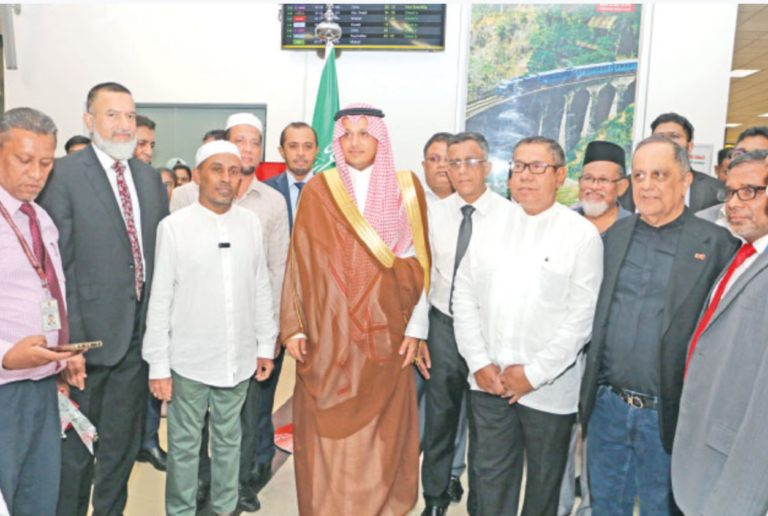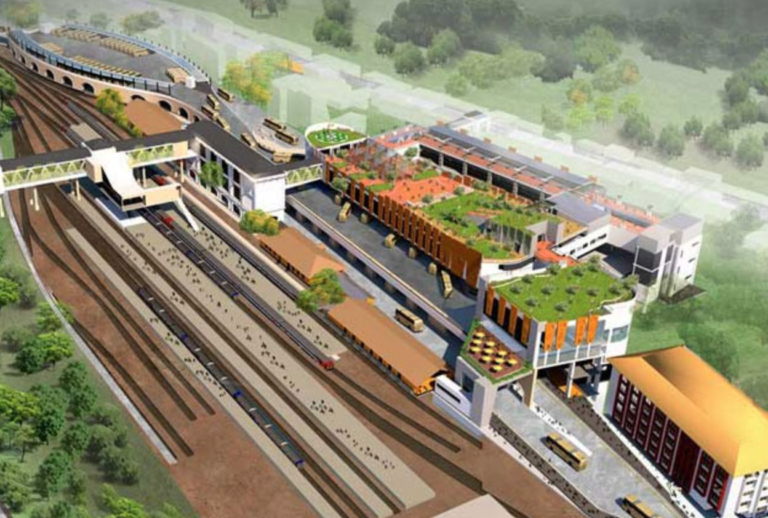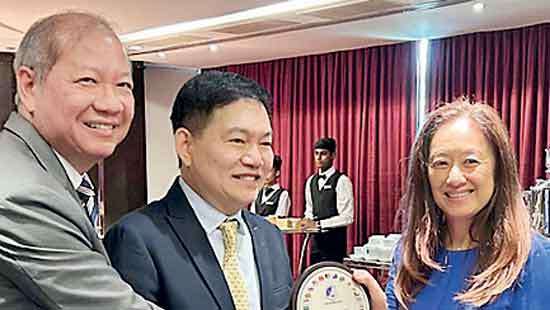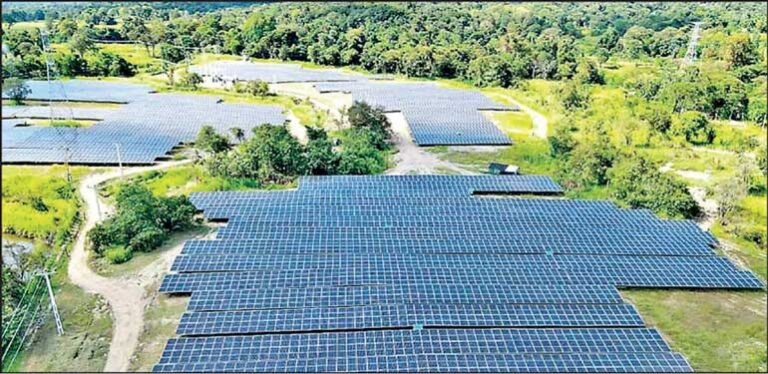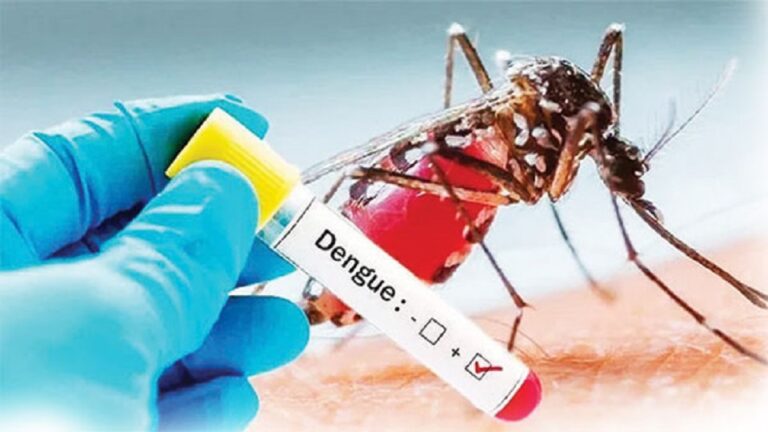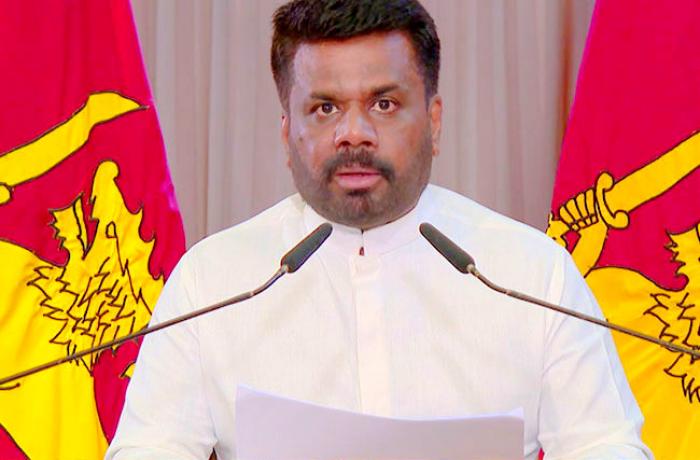Most appropriate to purify our minds on this day – Asgiriya Prelate
Chief Prelate of the Asgiriya Chapter Most Ven.Warakagoda Sri Gnanarathana Mahanayaka Thera issuing a statement to mark the Vesak day said shaping lifestyles according to the teachings of the Buddha will help people to lead peaceful and prosperous lives.
“On the Vesak Poya Day, Sri Lankan Buddhists give priority to Prathipatti pooja (practicing principles) such as alms giving, religious practices, meditation, and other observances.
They also engage in Vesak decorations and other offerings. However, it is very important to celebrate the Vesak festival as devoted Buddhists by engaging mainly in Prathipatti Pooja.
“We have so far been slow to utilise the teachings of the Buddha to save the people of the world from the destructive wars of this era, when we must look thoughtfully not only at the country we live in, but also at the entire world.
“It would be most appropriate to purify our minds on this Vesak day and follow Buddha’s teachings and work towards true peace and contentment”.
Work with determination to remember the boundless qualities of Buddha – Malwatte Prelate
The noble teachings of the Buddha, which explains suffering, the cause of suffering, the cessation of suffering, and the path to the cessation of suffering are the only ways to show the correct path to society, which is afflicted by various vices and frustrations in the current volatile era, Chief Prelate of the Malwatte Chapter Most Venerable Thibbotuwawe Sri Siddhartha Sumangala Mahanayake Thera said in his Vesak Day message.
“On this auspicious day of the Vesak Full Moon Poya, the devout Buddhist public should work with determination to remember the boundless qualities of the Buddha, the embodiment of great wisdom and great compassion, and to set their minds on merit and strive for liberation from samsara.
“Therefore, striving to nourish oneself on the journey of life with the virtues of mindfulness, action, concentration, and wisdom is the highest respect that can be shown the Buddha.
On this auspicious day of Vesak Full Moon Poya, I would like to remind all Sri Lankans that it is important to be determined to achieve spiritual liberation by following Buddha’s teachings,” the Prelate said.
Inspired by Buddha’s teachings, we must strive to build a prosperous nation – President
President Anura Kumara Dissanayake said we must strive to build a prosperous nation rooted in selflessness, equality and social justice, fulfilling the aspirations of our people for a “A Thriving Nation – A Beautiful Life.”
In his message to mark Vesak, the President said: The Vesak Full Moon Poya Day, which marks the Birth, Enlightenment and Parinirvana of the Lord Buddha, is a day of profound significance for Buddhists worldwide. It was on such a sacred Vesak Day that the Buddha, having fulfilled the Perfections (Paramitas), vanquished the forces of Mara, cultivated wisdom through the Middle Path, realised the Four Noble Truths and eradicated all defilements to attain Supreme Enlightenment (Samma Sambuddha).
Throughout countless lifetimes, the Buddha endured suffering, perfected virtues and ultimately discovered the Dhamma, a timeless truth for the spiritual well-being of all beings. His core teaching was not merely religious but a path to inner development, guiding humanity towards moral and intellectual growth. The Buddhist philosophy also provides profound insights into good governance. As the Buddha taught:
“Sabbamra ahasukhaaseti – Rajacehotidhammiko” (The whole country thrives in happiness – if its ruler is righteous.) This underscores that when a nation’s leader governs with justice and virtue, the people prosper in peace.
Inspired by the Buddha’s teachings, we must strive to build a prosperous nation rooted in selflessness, equality and social justice, fulfilling the aspirations of our people for a “A Thriving Nation – A Beautiful Life.” Let us unite with determination and diligence to achieve this noble vision.
“Moreover, the Buddha’s message of peace remains ever-relevant. In a world torn by conflict and division, we must embrace the Four Brahmaviharas, Loving-kindness (Metta), Compassion (Karuna), Altruistic Joy (Mudita) and Equanimity (Upekkha), to foster global harmony.
May this auspicious Vesak Festival illuminate all hearts with the light of Dhamma!”, the message said.
Citizens must unite in mind and spirit, bound together by mutual respect and compassion – PM
Prime Minister Dr. Harini Amarasuriya said in her Vesak Day message called on all to unite in mind and spirit, bound together by mutual respect and compassion.
The message said: It is an honour to extend my Vesak day message to all citizens of the nation during this sacred period in which the Buddhist community across Sri Lanka come together to pay homage to the Buddha, upholding both material and spiritual offerings and commemorating the threefold sacred events of the Lord Buddha’s life.
Since ancient times, the lives of the Sri Lankan people have been deeply rooted by the teaching of the Buddha and this is a greater inheritance we have received through the Dhamma.
In our country, where people of diverse ethnicities and religions co-exist in harmony, the collective celebration of a major religious festival such as Vesak stands as a powerful testament to that unity.
This year Vesak day celebration marks the first to be celebrated under the current Government, which was established with the vision of “A Prosperous Country, a Beautiful Life.”
I believe that this Vesak season is a particularly a time to heal the hearts and minds of humanity, especially as our nation embarks on a path of meaningful transformation.
Through this message, I take this opportunity to invite all of citizens to unite in mind and spirit, bound together by mutual respect and compassion.
“I join all Sri Lankans in praying that the flames of war burning in various parts of the world at this moment may be extinguished, and that all people across the globe may be blessed with lives of happiness and peace,” Prime Minister Dr.Harini Amarasuriya said in her message.
Opportunity to reflect on the Noble path of Dhamma – Opposition Leader
The sacred Vesak Full Moon Poya Day, which commemorates the triple events of the Buddha’s life, is an opportunity to reflect once again on the Noble path of Dhamma that Buddha revealed to the world, Opposition Leader Sajith Premadasa said in his message to mark Vesak.
His message further said: “In the face of the many challenges we encounter, it is immensely important that we understand well the doctrine of cause and effect as taught in Buddhist philosophy.
Whether in addressing the issues facing our nation or the wider world, we often seek solutions by focusing on the outcomes rather than identifying and addressing the root causes that give rise to those problems. Lord Buddha’s teaching shows us that it is only by understanding the causes that we can find true and lasting solutions. This is why we must practically apply this profound Dhamma in our lives.
Sri Lanka, along with the rest of the world, is currently confronting not only an economic crisis but also serious challenges to peace. Within the Dhamma shown by the Buddha, there are clear and practical answers to overcome such difficulties. In state governance, noble principles such as the Ten Royal Virtues (Dasa Raja Dhamma) provide essential guidance. Likewise, Buddhist philosophy offers teachings that any religious person can embrace on how to build economic stability, unity, equality, and harmony amidst diversity. We must recognise that spiritual development alongside physical progress is a fundamental necessity for a country’s true development. This must become a central focus in governance.
The most priceless gift we can offer to the world is the pure Theravada Dhamma. We must firmly understand our unwavering duty to expand opportunities for its dissemination, to nourish the Maha Sangha with wisdom, and to ensure the preservation and continuity of the monastic order.
More than 2,500 years after the Buddha’s Parinirvana, Buddhists across the world continue to commemorate Vesak because they have realised the unparalleled excellence of his Dhamma. At the moment of his passing, the Buddha clearly instructed that after him, the Dhamma should be held as the supreme teacher.
On this Vesak day, our solemn determination should be to uphold this noble vision, entrusting the Dhamma as our guide and committing ourselves to building a better world. Such commitment will open a path to a world filled with loving-kindness and free of hatred”.

